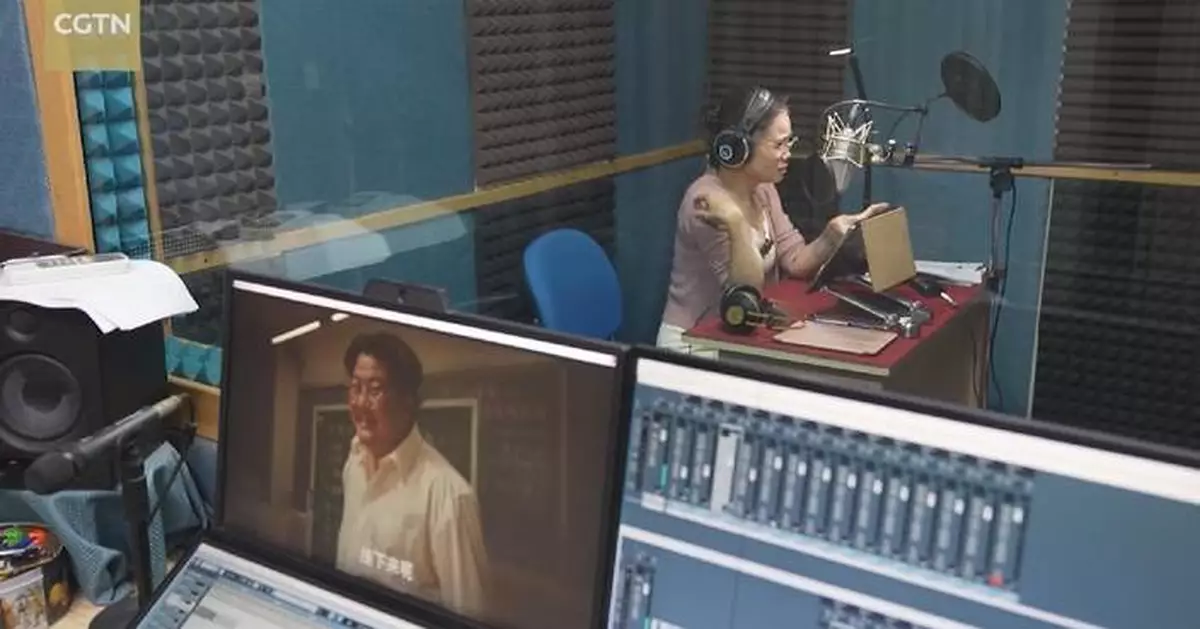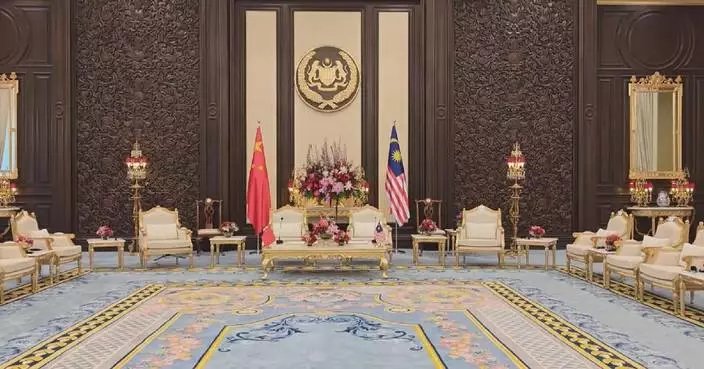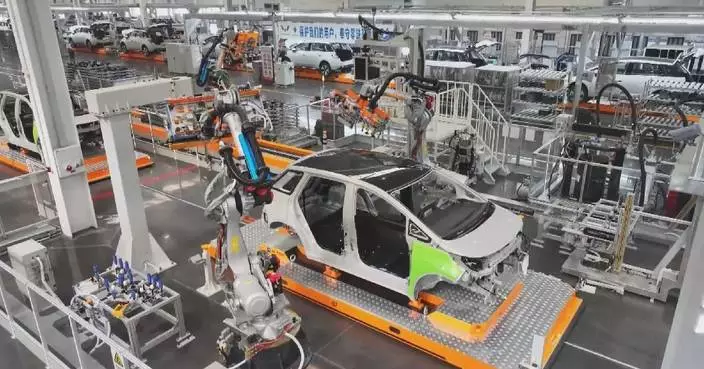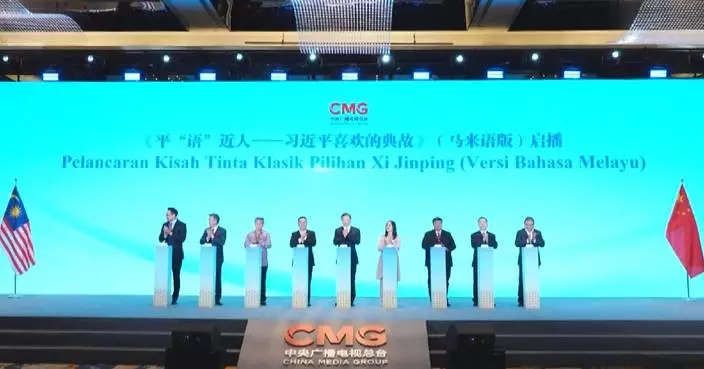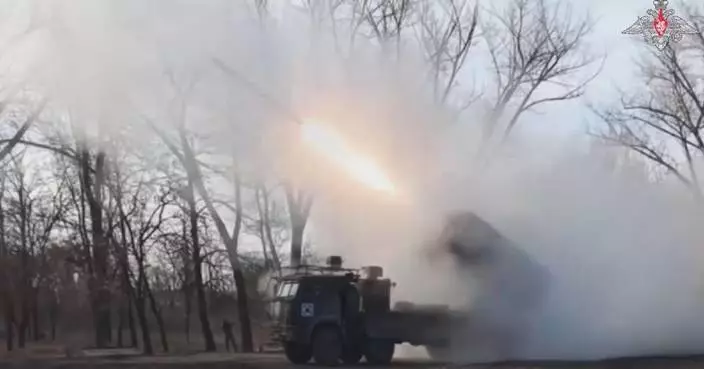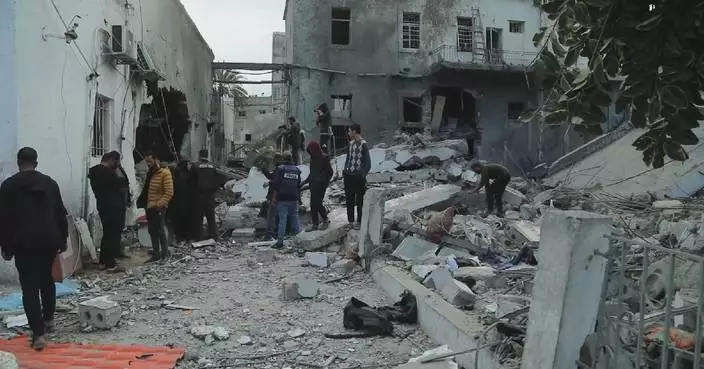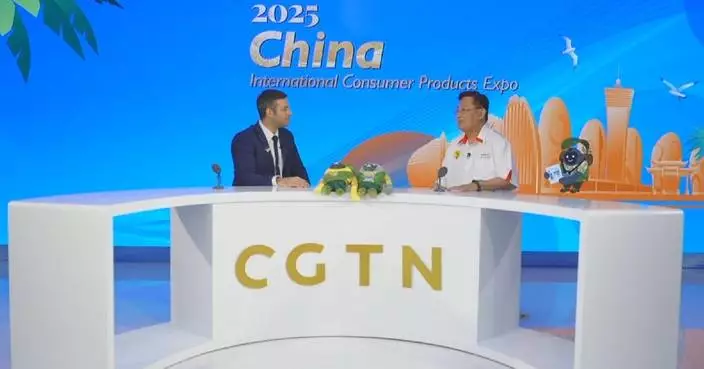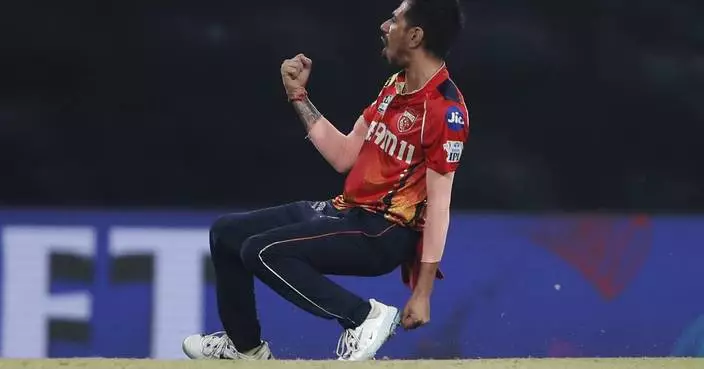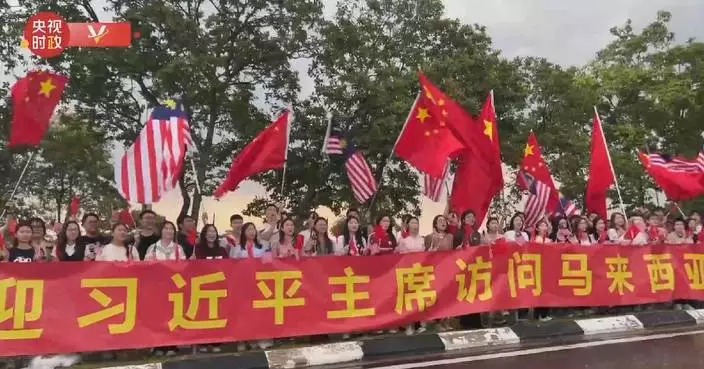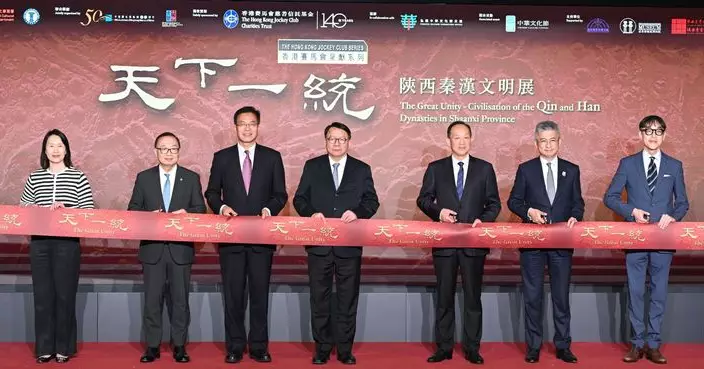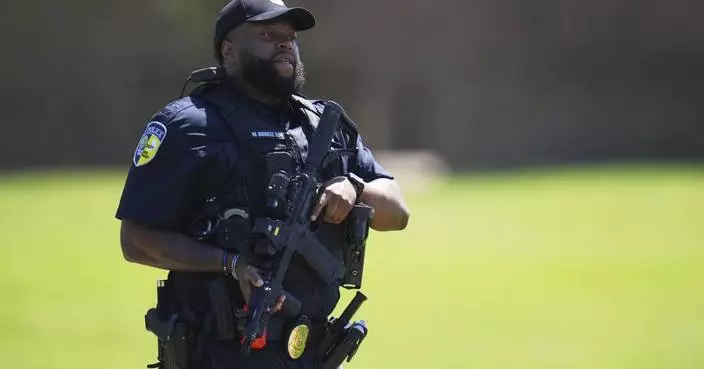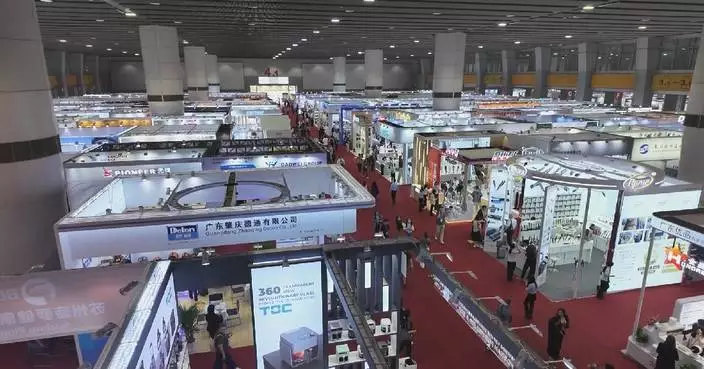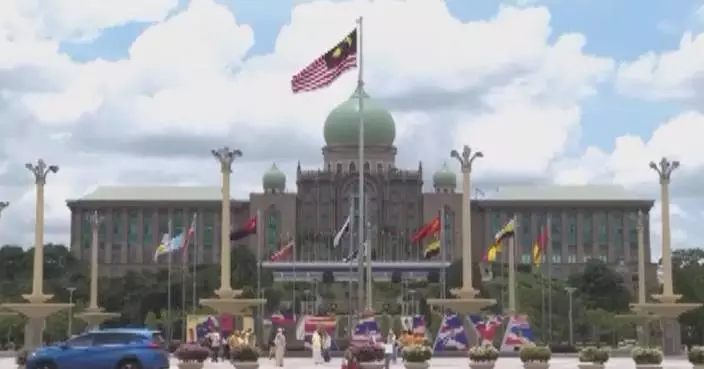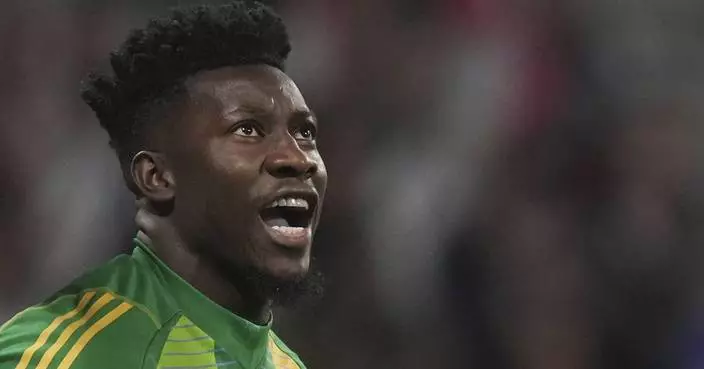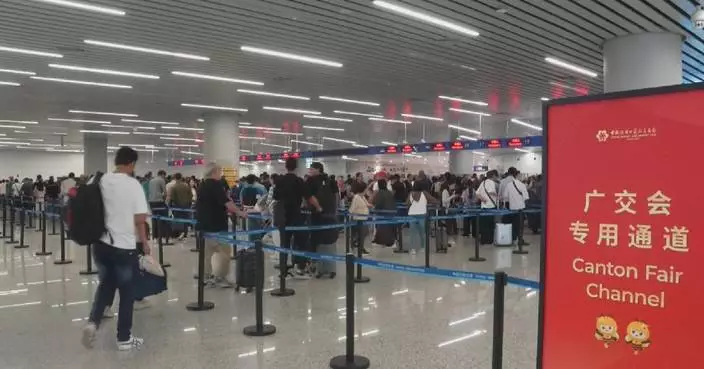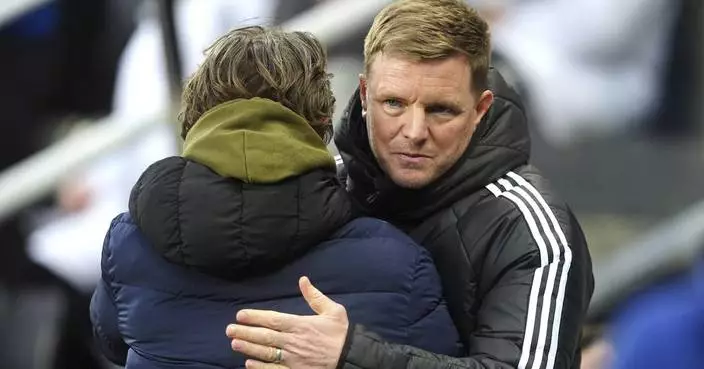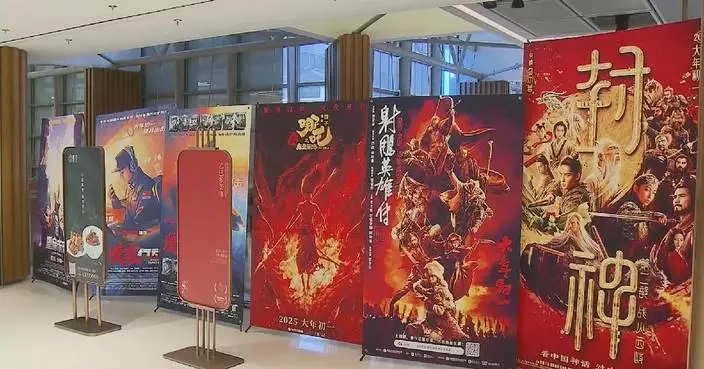An experienced voice actress in Vietnam has enriched her career by dubbing Chinese films and TV series, highlighting how visual entertainment plays a role in promoting cultural exchanges between the two countries.
In Hanoi, the capital of Vietnam, many people enjoy watching Chinese films and TV series. For decades, these shows have played a very important role in the local entertainment scenes.
Hellen Nguyen, a voice actress who has been dubbing movies for 30 years, started to dub Chinese films in 2014. She said that the more she dubs, the more she enjoys the films, with Chinese family-themed movies being her favorite.
"I grew up watching the Chinese drama 'Journey to the West', and it sparked my love for Chinese movies and dramas. I find them heart-warming, especially since their stories feel quite similar to those in Vietnam. It’s like watching reflections of my own culture," said Nguyen.
Thanks to translation apps on cell phones, the voice actors and actresses can easily leap over the language barrier as they find the right words in Vietnamese that capture the original meaning of the Chinese.
With her rich experience, Nguyen said she needs only a few minutes to grasp Chinese rhythm.
"Last year, I dubbed a Chinese TV program that introduced cuisine from China and ASEAN countries. Chinese TV shows and films made available in Vietnam help both nations understand each other’s cultures better. It feels as if we are traveling through China and Vietnam right from our screens," she said.
Chinese film and television culture has long been integrated into Vietnamese life. TV stations across over 50 provinces regularly air Chinese films and series, while online platforms and mobile devices also facilitate this trend.
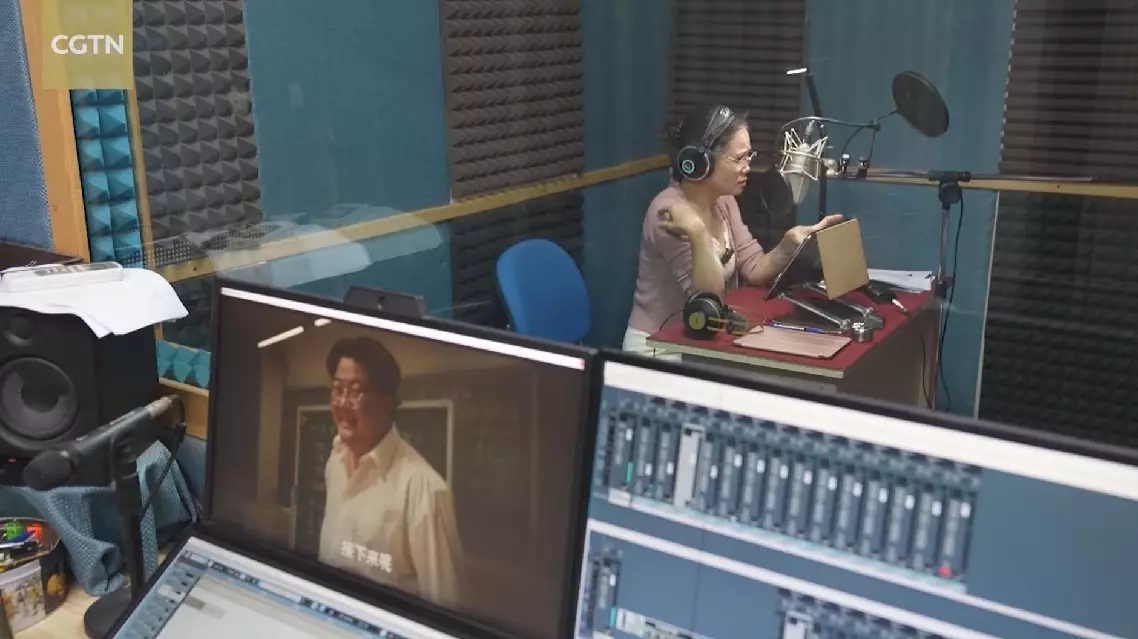
Vietnam's dubbing of Chinese films brings two cultures closer
Iran's Supreme Leader Ali Khamenei on Tuesday warned against "extreme optimism or pessimism" in the country about the indirect talks between Iran and the United States.
He made the remarks at a meeting with senior government officials in Iran's capital Tehran while pointing to the talks between Iranian Foreign Minister Seyed Abbas Araghchi and U.S. Special Envoy to the Middle East Steve Witkoff on Iran’s nuclear program and removing sanctions, the first round of which was held in the Omani capital Muscat on Saturday, according to a statement published on his website on Tuesday.
"We should not be extremely optimistic or extremely pessimistic about these talks," he said, adding that the negotiations may or may not yield results.
He stressed, "We are, of course, very distrustful of the other side. However, we are optimistic about our capabilities."
The Iranian leader also cautioned against "tying the country's affairs to the talks," emphasizing that activities in industrial, economic, construction, and cultural sectors, as well as the implementation of major projects, should proceed uninterrupted, as they are unrelated to the talks in Oman.
The second round of the indirect talks between Iran and the United States is scheduled to be held on this coming Saturday in Muscat.
According to U.S. media reports on Tuesday, the second aircraft carrier strike group deployed by the U.S. military in the Middle East had arrived in waters near Yemen, ahead of the second round of negotiations between the United States and Iran.
Satellite images show that the U.S. aircraft carrier Carl Vinson is currently positioned near Socotra Island off the coast of Yemen in the Gulf of Aden, according to the U.S. media reports.
Accompanying it are a cruiser and two destroyers, thus forming a dual U.S. carrier strike group in the region.
The U.S. Navy's Fifth Fleet, headquartered in Bahrain, declined to provide details about the mission of this carrier strike group.
The latest talks between Iran and the Untied States were proposed by U.S. President Donald Trump, who threatened Iran with bombing and secondary tariffs if Iran did not come to an agreement with the United States over its nuclear program.
Iran signed a nuclear deal, formally known as the Joint Comprehensive Plan of Action, with six major countries -- Britain, China, France, Germany, Russia, and the United States -- in July 2015, accepting restrictions on its nuclear program in return for sanctions relief.
However, the United States withdrew from the deal in May 2018 and reinstated sanctions, prompting Iran to scale back some of its nuclear commitments. Efforts to revive the nuclear deal have not achieved substantial progress.
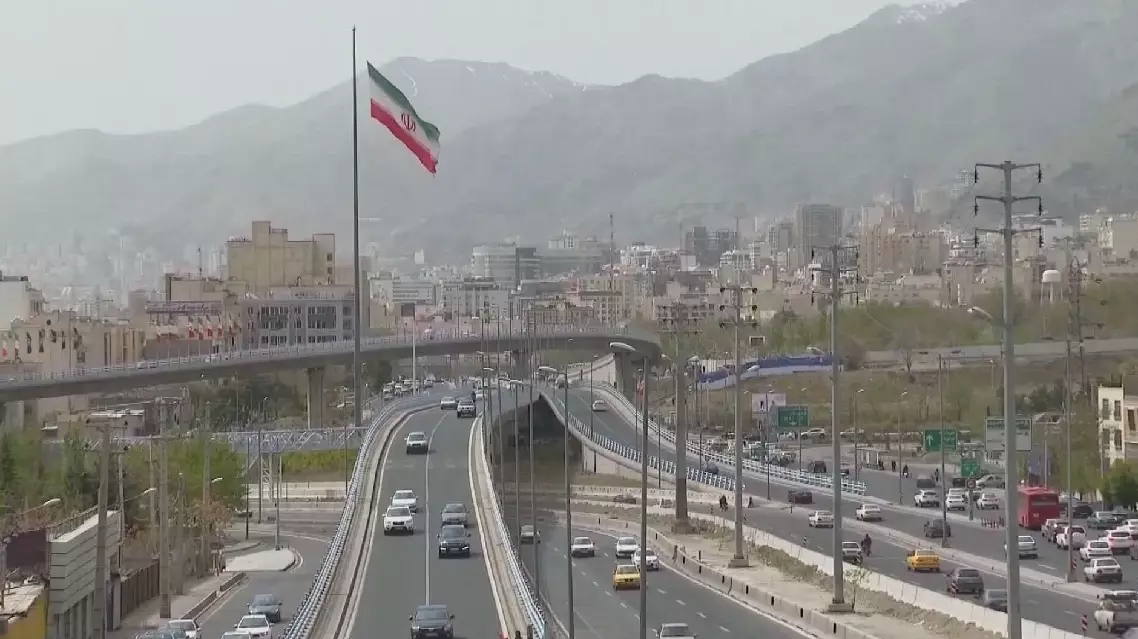
Iranian leader warns against extreme optimism, pessimism about talks with US



